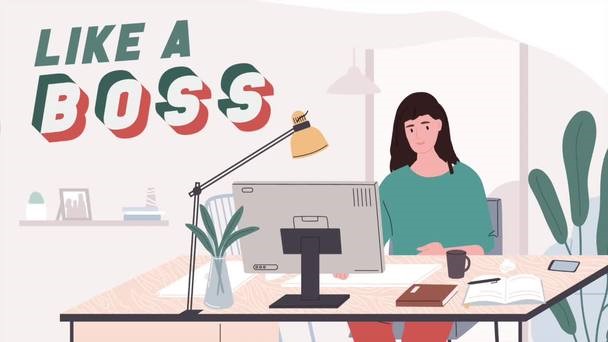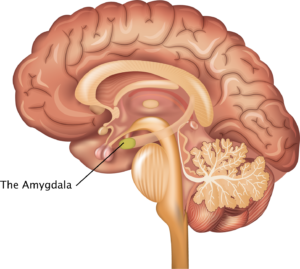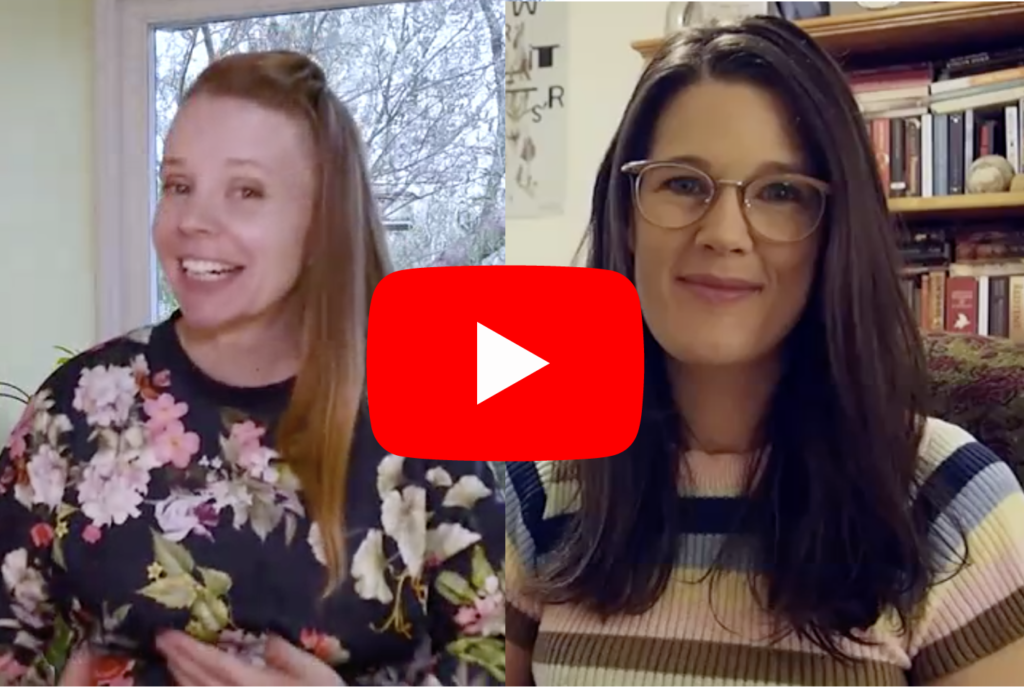
Hey Flinders Fam!
I hope we’re all doing okay this week. If not – that’s okay. We’re living through some pretty strange and distressing times and not being okay is a very legitimate state of mind! You know what though? This week, I think I’m starting to feel a little bit better on the mental wellbeing front. I’m more settled into my home routine now and have some daily anchor points and practices that have helped me. I’ve been reading in my garden a lot, I started doing Les Mills classes in my living room which help me switch out of work mode for the day (but oh my God I forgot how hard they are!), and, when I’m feeling particularly frazzled, I like to go and visit my virtual farm 😉
But that’s just my experiences, and I’m no expert at this! Luckily, I have an expert to talk us through what stress is and some long-term stress management strategies – Dr Lydia Woodyatt. After all, it is more important than ever to make sure we look after our mental wellbeing!
Stress is Normal!
Stress is totally normal! It is your body’s way of dealing with the feeling of pressure, risk or danger. Our brain has limited resources. It’s wired to detect when there’s threats in our environment. Those can be threats to our survival, safety, our social relationships, our status within those relationships, or even our feelings of success. So when any of these things become interrupted or at risk, the amygdala starts to fire off a warning: there’s something going on here!
Our body has a whole stream of physiological responses in response to that threat. We call this the fight, flight or freeze system. You might have heard of that before. When you think about that, I want you to think: what does my body feel like when I feel stressed? You might have a whole a whole range of things you identify: butterflies in your stomach, clammy palms, or tingling in your arms. Maybe you start to feel a sense of pressure or tension, or maybe your heart goes up, or you feel cotton headed.
All these physiological symptoms are just a side effect of what’s happening in your body to get you ready to do battle with that thing that’s threatening you.
So physiologically, what’s happening?

The Physiology of Stress
Inside your body, your blood is being directed to key organs: the heart, lungs and muscles that will help you run away. As a consequence, blood is being directed away from things like fingertips and your head – this is why you might get tingly feelings!
The other thing that gets put off is your digestion. It slows right down because it’s not a priority – that sandwich can wait! But this is why when we feel nervous or worried, we get butterflies in our tummy.
Other things are happening too. Cortisol, the stress hormone, and adrenaline, the thing that gears us up for action, are pumping through our body and getting us ready to respond. Plus, your inflammation system and your immune system are kicking into gear. This is a really cool thing about the human body: in response to a perceived threat or danger, our body starts to kick into gear so that it will be already activated if we were to get injured.

So, stress is actually your friend. It is gearing up for you to focus on and then fix a problem in your environment. It can help us in lots of situations. It can give us extra energy for a task – that extra pressure will lift our energy levels and give us an edge. The other situation is it can really help us focus on the problem. When our amygdala is going of our attention is really drawn towards the problem, like a telescope. We’re not seeing everything around us but we’re really seeing what the problem is. That can help us focus on it and fix it.
So, stress isn’t necessarily a problem. It’s actually helping you!
However, there are some situations where stress is not a friend, but an enemy.
When stress becomes a problem
Stress becomes a problem when it continues for too long. You see, for your body to be having that stress response, it requires all that chemical soup to be active and ready to be drawn on. But your body and your brain are like a water tank. Once that tank is depleted, it takes a while to recover and fill up again. And so if we have lots of stresses in our life – finances, family difficulties managing an illness – they draw away from our tank of resources and it can become depleted. When we are exposed to stress for a long time and we don’t let ourselves out of it, our tank can be really empty. We might have a nap or an afternoon off, but it doesn’t feel like it’s enough to fill up the tank anymore. That’s why chronic stress can be a real problem.

The other problem is really heightened stress, when it gets to a really excessive stage and it stops us from being able to function. Learning to manage stress so it doesn’t become chronic and so we don’t have those really intense periods – or we know how to manage them if we do – is a really important part of our education, professional, and life development.
So, basically, we want to keep stress in the friend zone – not as an enemy!
There are some long-term strategies that can help us manage that stress.
Long-term stress management strategies
- Break tasks into smaller steps
When tasks seem unmanageable, our stress is elevated and becomes our enemy. It’s like our brain does this judgement call about what demands on are on us at this point in time, and do we have what it takes? When we start to tell ourselves we don’t have what it takes, or when the demands seem to big, the stress goes up. Simple strategies like breaking down a big problem into smaller steps make the problem seem more manageable, then your physiological response to that stress starts to go down!
- Speak kindly to yourself
The other problem is how we talk to ourselves about the problem. If we tell ourselves we don’t have what it takes, it creates a cycle in our brain: our amygdala goes off, we tell ourselves we don’t have what it takes, so our amygdala goes off some more. So speaking kindly to ourselves, encouraging ourselves, and breaking problems into small parts is a really big part of our long term stress management.
- Remind yourself that life is more than any one thing
Another big issue is when we feel like all of our success, relationships, or safety and security are all in one basket. Maybe I’ve got an assignment coming up that I’m finding challenging. If I start to think that all of my career, all of my relationships, all of my success in life are dependent on this one thing, you’re putting all your psychological needs into one basket and so the stress related to those needs is going to be huge. So, one of the simple things we can do is to remind ourselves that life is more than any one thing. I’ve got a career of 21 years since I left school, and in that 21 years there’s not been one thing that’s been make or break. Not one assignment, one interaction, one closed or open door. Rather, it’s a lot of small things that add up to something. So, if we look at any one task and make it everything, that can escalate our feelings of stress.
- Accept what we have control over and make a plan
Another thing that can escalate our feeling of stress is when we emphasise things we don’t have control over. If we focus on all the ways we can’t cope because something is out of our control, or we don’t have a say over it, we undermine our own feeling of ‘can I hope in this situation?’ Part of managing stress is reminding yourself of what you do have control over and what you can fix. Remember, stress is supposed to help us focus and fix. So, we need to come up with a plan: what exactly is stressing us, and how can we fix it? If we keep avoiding it, it’s just going to keep causing our amygdala to fire off!

- Learn habits of self-compassion
The other thing that can be a big problem is perfectionistic tendencies! This is when we judge ourselves very harshly: if we have success, we believe it’s because the test was easy or everyone got those results; when we do something bad, we really blame ourselves. So, learning habits of self-compassion, being a good coach to yourself, and being realistic in how you appraise your own worth and performance is really important to managing stress – especially at university!
- Be realistic with yourself
Sometimes, we put stress on ourselves because we hold ourselves to a very high standard, and when we don’t meet it, we beat ourselves up. But there’s a lot of people on this planet and most of us go through our day not quite getting our to-do list done. We don’t quite succeed at the thing we hoped to succeed at, we don’t we miss things, we have to keep working on them in the future. When we have realistic expectations, we know that it doesn’t really matter – we just need to show up and make our best effort the next day and we’ll make forward progress!
Key learnings
Stress is a physiological response: it’s happening physically in your mind and body so take time to eat properly and rest so you can re-fill your tank so you have what you need to focus. We can’t keep engaging our stress system all the time, we have to give it time off.
Approach things in a way that minimise feelings of stress: break things up into small tasks, be kind to yourself, be realistic with yourself, no ‘all or nothing’ thinking, and remember that there are lots of things that matter to us – it’s not all about one thing!
Be kind to yourselves!

Thanks Dr Lydia for sharing some top tips with us! I hope there’s some strategies in there that you find useful.
Let’s not forget our supports! Jump on the Online Hub to find links to the Flinders Support Network where you can find Health and Counselling, Oasis and FUSA if you do need some help or advice.
If you’re keen to go deep into this topic, Lydia runs a topic called ‘Psychology of Surviving and Thriving’ (PSYC1108) that is designed to help develop strategies to help support your own wellbeing, learning strategies and success. It’s a first-year topic designed for all uni students, and it’s offered online in Semester 2 and over the summer.
Next week we’ll be continuing to think about our wellbeing as we jump into staying connected to community – how can we make sure we keen social and in touch while ensuring we don’t touch.
See you then,
Lauren


